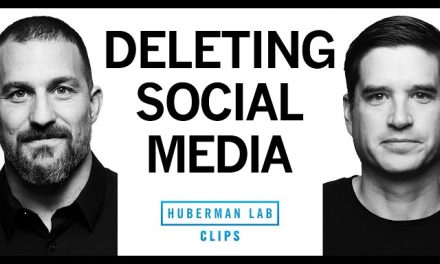1. Black Swan Theory: The Black Swan theory, popularized by author and statistician Nassim Nicholas Taleb, refers to the concept of unpredictable, high-impact events that have a profound and far-reaching influence. These events are characterized by their extreme rarity, unpredictability, and the tendency to catch people off guard. The term “Black Swan” draws from the belief that, before the discovery of black swans in Australia, it was commonly assumed that all swans were white. In the context of finance, economics, and risk management, Black Swan events challenge conventional wisdom and reveal the limitations of predictive models. The theory underscores the importance of being prepared for unforeseen events and the recognition that even the most well-thought-out plans can be disrupted by extreme, unexpected occurrences.
2. The Theory of Everything: The Theory of Everything is a concept in theoretical physics that aims to unify all the fundamental forces and particles in the universe under a single, coherent framework. This elusive theory seeks to reconcile general relativity, which describes the behavior of gravity on large scales, with quantum mechanics, which governs the behavior of particles on the smallest scales. While several theories, such as string theory and loop quantum gravity, have been proposed as candidates for the Theory of Everything, no definitive solution has been found yet. The quest for a complete and all-encompassing theory continues to be a major goal in the field of physics, as it promises to provide a deeper understanding of the fundamental laws governing our universe.
3. Everything We Don’t Know: The universe is a vast and intricate tapestry of mysteries, and there is much that we don’t know about it. From the enigmatic nature of dark matter and dark energy, which collectively constitute the majority of the cosmos, to the inner workings of the human brain and the origin of consciousness, there are profound questions that continue to elude our understanding. The depths of the Earth’s oceans and the intricacies of Earth’s climate systems also hold countless secrets. Furthermore, the complexities of the quantum realm challenge our intuitions and have many unanswered questions. On a cosmic scale, the nature of black holes, the existence of extraterrestrial life, and the ultimate fate of the universe are all shrouded in mystery. The pursuit of knowledge and exploration is an ongoing journey, and as we uncover answers to some questions, we inevitably unearth even more profound mysteries that drive our relentless quest for understanding.
4. The Dunning-Kruger Effect: The Dunning-Kruger Effect is a cognitive bias that describes the phenomenon where individuals with low levels of competence in a particular area tend to overestimate their abilities and believe they are more competent than they truly are. This cognitive bias, identified by psychologists David Dunning and Justin Kruger, highlights the paradoxical nature of self-assessment, wherein those who lack the skills or knowledge to accurately evaluate their performance are often the most confident in their abilities. This effect underscores the importance of self-awareness and the need for individuals to recognize their limitations and seek improvement through education and experience. The Dunning-Kruger Effect has wide-ranging implications in various aspects of life, from decision-making and problem-solving to interpersonal relationships and professional development.
5. The Courage to Be Disliked: is a thought-provoking theory by Ichiro Kishimi and Fumitake Koga that explores the principles of Adlerian psychology and philosophical ideas, particularly those of Alfred Adler, to encourage personal growth and self-acceptance. The book challenges the conventional belief that our past experiences and external circumstances determine our happiness and self-worth, suggesting instead that we have the power to choose our own paths and define our identities independently of external validation. It emphasizes the importance of taking responsibility for our own lives and choices while acknowledging the courage it takes to embrace a philosophy that often goes against societal norms. “The Courage to Be Disliked” invites readers to reconsider their perspectives, promoting a sense of empowerment and freedom to live a life true to one’s own values and aspirations, regardless of the judgments or expectations of others.
6. The Nostalgia Effect: The Nostalgia Effect is a powerful and universal phenomenon that reflects our deep emotional connection to the past. It’s the warm rush of sentimentality we experience when revisiting cherished memories, music, places, or objects from earlier periods of our lives. Nostalgia can evoke a range of emotions, from happiness and comfort to a sense of longing and melancholy. This effect has been widely studied in psychology and has shown to have numerous benefits, including enhancing our mood, boosting self-esteem, and fostering a sense of continuity in our personal narratives. In a world characterized by constant change, the Nostalgia Effect serves as a comforting anchor to our past, reminding us of the people we once were and the experiences that have shaped us.
7. The Egg Theory: The Egg Theory, often associated with the short story “The Egg” by author Andy Weir, offers a fascinating perspective on the interconnectedness of all human beings throughout time. In this theory, a person dies and meets God, who reveals that all individuals who have ever lived or will live are actually the same soul reincarnated into different bodies, experiencing every life in a linear progression. This concept challenges conventional notions of individuality and emphasizes empathy and compassion, as we are essentially interacting with different facets of ourselves in every person we encounter. The Egg Theory invites contemplation about the shared human experience, the significance of our actions, and the potential for spiritual growth through understanding our interconnectedness.
8. The Power of Thinking for Yourself: The power of thinking for oneself is a cornerstone of individuality and personal growth. When we engage in independent thought, we exercise our capacity for critical thinking, creativity, and decision-making. It allows us to form our own perspectives, question established beliefs, and make informed choices. Thinking for oneself fosters self-confidence and self-reliance, empowering us to navigate the complexities of life with greater autonomy. Moreover, it drives progress and innovation, as many of history’s groundbreaking ideas and inventions were born from individuals who dared to challenge the status quo and think independently. Ultimately, the ability to think for oneself is not only a personal asset but also a force for positive change in society, driving us to question, learn, adapt, and evolve.































South Florida Media Comments